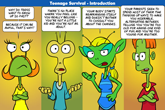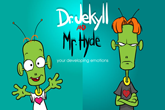Australian Scientists Solve a Lingering Vaccine Mystery
The U.S. Food and Drug Administration (FDA) approved a single-dose COVID-19 vaccine manufactured by Johnson & Johnson in March 2021, but requested that it be voluntarily withdrawn just a month later because of its link to a rare, serious blood-clotting disorder. Now, researchers in Australia have discovered the cause of the condition.
Dr. Jing Jing Wang and Professor Tom Gordon, both of Flinders University in Adelaide, South Australia, found that the disorder—called vaccine-induced immune thrombotic thrombocytopenia (VTT)—affects people who are genetically prone to a reaction to adenovirus. Adenovirus was the virus used to carry and stimulate antibodies to the coronavirus in the Johnson & Johnson vaccine. (Some people in Europe who received the Oxford-AstraZeneca vaccine experienced the same reaction.) Dr. Wang notes that the discovery provides valuable information for vaccine developers. “By modifying or removing this specific adenovirus protein, future vaccines can avoid this extremely rare reaction while continuing to provide strong protection against disease.”
Dr. Jing Jing Wang and Professor Tom Gordon, both of Flinders University in Adelaide, South Australia, found that the disorder—called vaccine-induced immune thrombotic thrombocytopenia (VTT)—affects people who are genetically prone to a reaction to adenovirus. Adenovirus was the virus used to carry and stimulate antibodies to the coronavirus in the Johnson & Johnson vaccine. (Some people in Europe who received the Oxford-AstraZeneca vaccine experienced the same reaction.) Dr. Wang notes that the discovery provides valuable information for vaccine developers. “By modifying or removing this specific adenovirus protein, future vaccines can avoid this extremely rare reaction while continuing to provide strong protection against disease.”
Categories: Teen Health
Is bubble tea bad for you? New research raises red flags
That photogenic cup of bubble tea may come with hidden downsides. Tapioca pearls made from cassava can absorb heavy metals like lead, and in large amounts they may slow digestion or even cause blockages. The drink is often loaded with sugar—sometimes more than soda—raising risks for cavities, obesity, diabetes, and fatty liver disease. There are even reports linking frequent consumption to kidney stones and poorer mental health.
Categories: Teen Health
Hidden ingredient in Ozempic and Wegovy tablets raises new gut health questions
Scientists are taking a closer look at the pill forms of Wegovy and Ozempic. In an animal study, the ingredient SNAC, which helps semaglutide survive the stomach and enter the bloodstream, was associated with changes in gut bacteria, inflammation markers, and a brain linked protein. The research does not show harm in people, but it raises new questions about the long term effects of daily exposure.
Categories: Teen Health
American Heart Association warns 60% of US women will have cardiovascular disease by 2050
Heart disease is on track to tighten its grip on American women. New projections from the American Heart Association warn that over the next 25 years, cardiovascular disease will rise sharply, driven largely by a surge in high blood pressure, diabetes, and obesity. By 2050, nearly 60% of women in the U.S. could have high blood pressure, and close to one in three women ages 22 to 44 may already be living with some form of heart disease.
Categories: Teen Health
The more you fear aging, the faster your body may age
Worrying about getting older—especially fearing future health problems—may actually speed up aging at the cellular level, according to new research from NYU. In a study of more than 700 women, those who felt more anxious about aging showed signs of faster biological aging in their blood, measured using cutting-edge “epigenetic clocks.” Fears about declining health had the strongest link, while concerns about beauty or fertility didn’t appear to have the same biological impact.
Categories: Teen Health
Autism Representation Gets a Positive Boost with New Barbie Doll
In January of this year, the Mattel toy company introduced an autistic Barbie to its lineup of popular fashion dolls. The company partnered with the nonprofit disability rights organization Autistic Self Advocacy Network (ASAN), which works to empower the autistic community, to develop the doll. The process took over eighteen months to complete.
The autistic Barbie comes with a fidget spinner, noise-canceling headphones, and a computer tablet showing symbol-based augmentative and alternative communication apps. She joins Mattel’s other Barbie figures designed to champion diversity, including versions with Down syndrome, blindness, vitiligo, prosthetic limbs, and more.
The autistic Barbie comes with a fidget spinner, noise-canceling headphones, and a computer tablet showing symbol-based augmentative and alternative communication apps. She joins Mattel’s other Barbie figures designed to champion diversity, including versions with Down syndrome, blindness, vitiligo, prosthetic limbs, and more.
Categories: Teen Health
Babies exposed to far more “forever chemicals” before birth than scientists knew
Babies born in the early 2000s were exposed in the womb to far more “forever chemicals” than researchers once realized, according to a new study. By using advanced chemical screening on umbilical cord blood, scientists detected 42 different PFAS compounds, including many that standard tests do not routinely check for. These long lasting chemicals are found in common products like nonstick cookware, food packaging, and stain resistant fabrics, and they can build up in the body over time.
Categories: Teen Health
Generative AI analyzes medical data faster than human research teams
Researchers tested whether generative AI could handle complex medical datasets as well as human experts. In some cases, the AI matched or outperformed teams that had spent months building prediction models. By generating usable analytical code from precise prompts, the systems dramatically reduced the time needed to process health data. The findings hint at a future where AI helps scientists move faster from data to discovery.
Categories: Teen Health
Sugary drinks linked to rising anxiety in teens
Sugary drinks may be linked to more than just physical health problems in teens. A new review of multiple studies found a consistent association between high consumption of beverages like soda, energy drinks, sweetened juices, and flavored milks and increased anxiety symptoms in adolescents.
Categories: Teen Health
Canadian Olympian Shines in Figure Skating—and in Time Management
Balancing school and athletics can be stressful, especially when you have work due at the same time that you’re preparing for an important competetion. Multiply that feeling a dozen times over and you might understand how twenty-two-year-old Canadian figure skater Maddie Schizas felt when she realized she owed her McMaster University sociology professor a writing assignment—the day before she performed in the Winter Olympics’ women’s short program.
Fortunately, Maddie understands that openness and good communication are essential skills for time management. She sent her professor an email from Milan, Italy, explaining that she’d misread the assignment due date and requesting an extension. The teacher gave her extra time to finish the paper, and was impressed that Maddie didn’t try to use her position as leverage. “I respect the fact that she wasn’t using that as a reason to get special treatment or accommodations,” he said. He even posted a photo of himself watching her performance on Instagram. Maddie finished sixth in the program, helping Canada to finish fifth overall.
Fortunately, Maddie understands that openness and good communication are essential skills for time management. She sent her professor an email from Milan, Italy, explaining that she’d misread the assignment due date and requesting an extension. The teacher gave her extra time to finish the paper, and was impressed that Maddie didn’t try to use her position as leverage. “I respect the fact that she wasn’t using that as a reason to get special treatment or accommodations,” he said. He even posted a photo of himself watching her performance on Instagram. Maddie finished sixth in the program, helping Canada to finish fifth overall.
Categories: Teen Health
Lab grown human spinal cord heals after injury in major breakthrough
Researchers have built a realistic human mini spinal cord in the lab and used it to simulate traumatic injury. The model reproduced key damage seen in real spinal cord injuries, including inflammation and scar formation. After treatment with fast moving “dancing molecules,” nerve fibers began growing again and scar tissue shrank. The results suggest the therapy could eventually help repair spinal cord damage.
Categories: Teen Health
Large study finds no link between mRNA COVID vaccine in pregnancy and autism
Researchers tracked more than 400 toddlers to see whether mRNA COVID-19 vaccination during or just before pregnancy was linked to autism or developmental delays. After detailed assessments of speech, motor skills, behavior, and social development, they found no meaningful differences between vaccinated and unvaccinated groups. Experts say the results provide strong reassurance about vaccine safety in pregnancy.
Categories: Teen Health
Scientists discover hidden brain cells that help heal spinal cord injuries
Scientists at Cedars-Sinai have uncovered a surprising repair system in the spinal cord that could open new doors for treating paralysis, stroke, and diseases like multiple sclerosis. They found that special support cells called astrocytes—located far from the actual injury—spring into action after damage. These “lesion-remote astrocytes” send out a protein signal, CCN1, that reprograms immune cells to efficiently clean up fatty nerve debris.
Categories: Teen Health
Everyone thought autism mostly affected boys. This study says otherwise
Autism has long been thought of as a condition that mostly affects boys, but a massive study from Sweden suggests that idea may be misleading. Tracking nearly 3 million people over decades, researchers found that while boys are diagnosed more often in childhood, girls steadily catch up during their teenage years. By early adulthood, autism diagnoses among males and females are nearly equal.
Categories: Teen Health
Menopause linked to grey matter loss in key brain regions
A major study suggests menopause is linked to changes in brain structure, mental health, and sleep. Brain scans revealed grey matter loss in areas tied to memory and emotional regulation, while many women reported increased anxiety, depression, and fatigue. Hormone therapy did not reverse these effects, though it may slow age-related declines in reaction speed. Researchers say menopause could represent an important turning point for brain health.
Categories: Teen Health
A New Study Reveals the Risks of Gambling for Adolescent Boys
A newly published study by Common Sense Media reveals the extent of gambling’s appeal to and risks for boys, especially online. The research, conducted in July 2025, surveyed 1,017 boys between the ages of eleven and seventeen across the United States, and found that 36 percent of them had gambled in 2024.
While 14 percent of the participants said they’d actively searched for betting opportunities on the Internet, over half of the gambling content they encountered was passive—it appeared in the broadcasts or live-streams of sporting events they watched, showed up in ads in the YouTube video accounts they follow, “just started showing up” in their social media feeds, or was shared with them by friends. Perhaps most surprisingly, nearly two-thirds of boys who gambled placed bets and used other gambling-like systems in the video games they played, making this the most widespread form of online gambling reported in the study.
While 14 percent of the participants said they’d actively searched for betting opportunities on the Internet, over half of the gambling content they encountered was passive—it appeared in the broadcasts or live-streams of sporting events they watched, showed up in ads in the YouTube video accounts they follow, “just started showing up” in their social media feeds, or was shared with them by friends. Perhaps most surprisingly, nearly two-thirds of boys who gambled placed bets and used other gambling-like systems in the video games they played, making this the most widespread form of online gambling reported in the study.
Categories: Teen Health
Late bedtimes are linked to higher heart disease risk
People who naturally stay up late may be putting their hearts under added strain as they age. A large study tracking more than 300,000 adults found that middle-aged and older night owls had poorer overall heart health and a higher risk of heart attack and stroke than those who were active earlier in the day, with the effect especially pronounced in women. Much of this elevated risk appeared to stem from lifestyle factors common among evening types, including smoking and inadequate sleep.
Categories: Teen Health
The early turning point when men’s heart risk accelerates
Men start developing heart disease earlier than women, with risks rising faster beginning around age 35, according to long-term research. The difference is driven mainly by coronary heart disease, not stroke or heart failure. Traditional risk factors explain only part of the gap. The findings suggest earlier screening could help catch problems before serious damage occurs.
Categories: Teen Health
California Teen Creates a Prize-Winning Device to Monitor Falls
A thirteen-year-old in Hacienda Heights, California, has created a computer device that pairs with a mobile app to detect when someone has fallen. Kevin Tang was prompted to develop Fallguard when his own grandmother and a friend’s grandparent separately suffered debilitating falls that went undetected for long periods. Using Google’s MediaPipe artificial intelligence (AI) library, Kevin devised a way to connect a camera to the computer and mobile app, which can be installed on multiple phones without the need for cellular service or messaging fees.
Fallguard won Kevin first place at the 2025 3M Young Scientist Challenge last October, which came with an award of $25,000. He’s already reinvested part of his cash prize toward improving and growing the project. And while the money is nice, the effort that went into building Fallguard is what Kevin is most proud of. “I just kept working until I had a final product,” he said.
Fallguard won Kevin first place at the 2025 3M Young Scientist Challenge last October, which came with an award of $25,000. He’s already reinvested part of his cash prize toward improving and growing the project. And while the money is nice, the effort that went into building Fallguard is what Kevin is most proud of. “I just kept working until I had a final product,” he said.
Categories: Teen Health
The hidden health impact of growing up with ADHD traits
A large, decades-long study suggests that signs of ADHD in childhood may have consequences that extend well beyond school and behavior. Researchers followed nearly 11,000 people from childhood into midlife and found that those with strong ADHD traits at age 10 were more likely to experience multiple physical health problems and health-related disability by their mid-40s.
Categories: Teen Health






